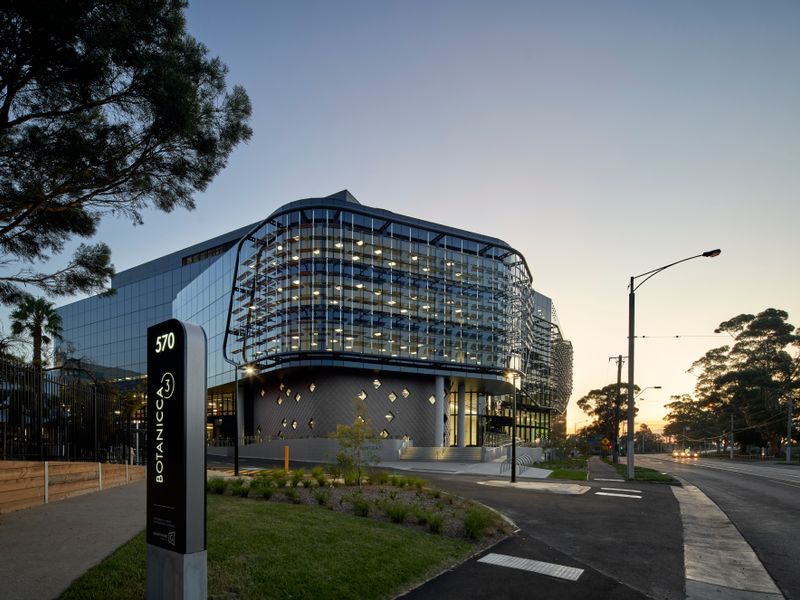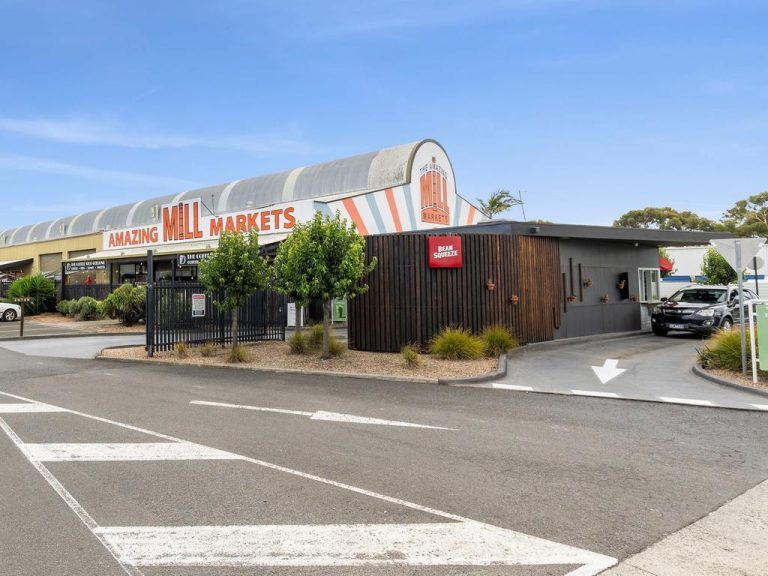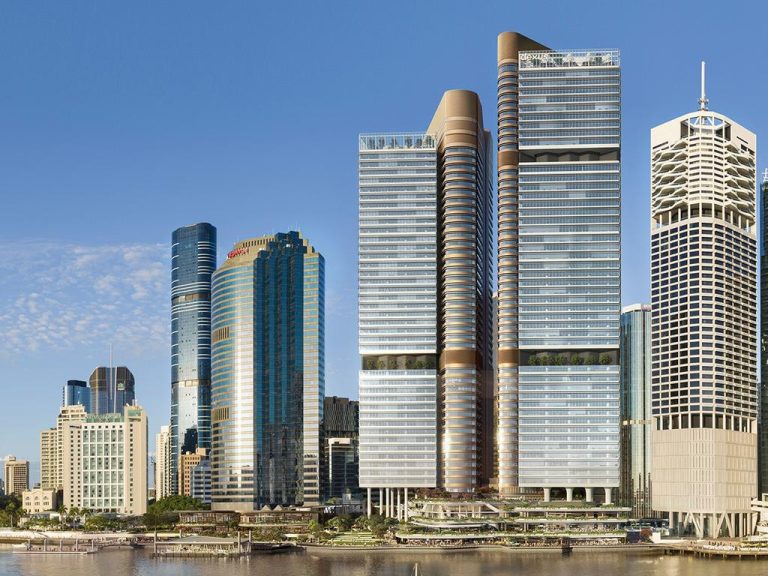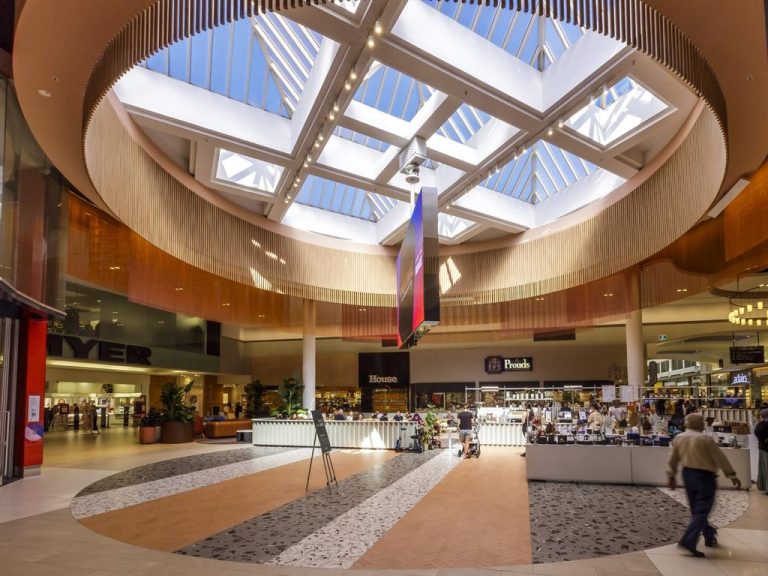Bunnings sticks to suburbs as COVID hinders interest in CBD offices

Bunnings has committed to a continuing presence in suburban offices, a market that is receiving more attention from prospective tenants as the coronavirus recession hits CBDs.
The hardware giant is bringing its support teams based in suburban Melbourne under the one roof, the latest metropolitan office tenant to be drawn to hub locations like Melbourne’s Richmond/Cremorne, North Sydney and Sydney’s second CBD in Parramatta.

Metro office markets like Richmond, where Bunnings is moving its Melbourne-based support staff, are performing better than the CBDs. Picture: realcommercial.com.au/lease
Colliers International managing director of office leasing Simon Hunt said metro office markets were performing better than CBDs during the pandemic.
“There’s more enquiry from prospective tenants for metro buildings than the CBDs at the moment,” Mr Hunt said.
While commercial property inspections only resumed in Melbourne on 19 October, Mr Hunt said there had been active negotiations in the Sydney and Brisbane metro markets.
He said health considerations during the pandemic were contributing to the activity in metro markets, as people could get to those buildings by car instead of public transport and prospective tenants were often not inspecting high-rise buildings that required lift access.
Plan1 Project Management & Consultancy co-founder Richard Jenkins said the pandemic had caused some companies to change their view of metro office markets.
“It was seen as the distant cousin of office space,” he said.
Mr Jenkins said in Melbourne, the view that companies had to have a CBD location to attract the best staff had changed.
“There’s groups now looking at suburban locations because they said ‘we can’t even get staff into these CBD offices’.”
COVID’s lasting impact on offices
REA Group chief economist Nerida Conisbee said changes in the way people work would have an impact on all office markets, with more employees likely to be working from home more frequently.
“It does mean that it is unlikely that everyone will return to the office in the same way that they did prior to COVID,” she said.
Ms Conisbee said some employers were considering whether they could replace a CBD office with satellite offices, given many people liked working from home during the pandemic or wanted to continue to be close to home.
Companies also routinely assessed their space requirements and location.
“There is quite a lot of potential for better priced spaces so you might start to see a bit of movement just based on that,” Ms Conisbee said.
“If office rents continue to drop then we may start to see a lot more people moving around to get a better deal.”
Mr Jenkins said companies looking at office space in Melbourne had previously focused on the CBD and city fringe areas.
He expected some may look at other suburban locations as they reconsider the way they occupy office space due to ongoing social distancing requirements.
“The rents that were required in the CBD are significantly discounted in the suburbs,” Mr Jenkins said.
“If you’re needing offices to be larger from a footprint point of view to accommodate the same staff, maybe it is more efficient or cost effective to have multiple locations in the suburbs.”

The coronavirus pandemic may change some companies’ views of the metro office market. Picture: realcommercial.com.au/lease
Colliers’ latest metro office report said that instead of opening a number of suburban ‘spoke’ offices, companies were more likely to maintain a CBD and/or city fringe location as the central office where collaboration, events, training and major meetings took place.
Mr Hunt expected medium to large corporates would still require a head office or hub.
“I don’t think many companies are looking at moving out of their CBD offices and then into a major metropolitan market,” Mr Hunt said.
“However, it depends on the different businesses within that corporate.”
Mr Hunt said there remained a place for metropolitan markets that had good comparable buildings to CBDs, but they had to have good amenity – car parks, public transport, retail, health and fitness clubs, child care and end-of-trip facilities.
Bunnings moving offices in Melbourne
Bunnings will move its Victorian and national store support teams, currently located across six Melbourne offices, into a new building in Richmond.
Bunnings director of property and store development Andrew Marks said the company had been exploring options for some time and wanted to bring the teams together into a single home that provided a modern and accessible workspace.
The company took a 10-year lease as the key tenant for Growthpoint Properties Australia’s Botanicca 3 building. David Jones and Country Road have their national head offices in the corporate park’s first two buildings, on 15-year leases.

Known for its warehouses, Bunnings will move its Melbourne-based store support teams from six offices into the one Richmond location. Picture: realcommercial.com.au/sold
Mr Marks said Richmond was an ideal location with its transport and bike links, and was close to Bunnings’ current offices in Hawthorn.
“The building we’ve chosen provides us outstanding flexibility for our growing team in facilities consistent with many of our other store support offices in Australia and New Zealand,” he said.
“When we start to move in from mid-2021, it will be the first time our Victorian and national store support teams have been under one roof for 15 years and the move ties in neatly with our existing lease expiries.
“We’re working with health and spatial experts to create a working environment that is safe, makes collaboration easy and allows our team to seamlessly transition between home and office work.”
Bunnings’ other state support centres are also located in suburban locations, including Mt Gravatt in Brisbane’s south where the company recently decided to extend its lease and refresh the office.
Metro office hubs in vogue before COVID
The Colliers report noted a number of metro office tenants had moved to hub locations like Parramatta, North Sydney and Richmond/Cremorne in recent years, attracted by their good public transport and road access.
Examples included National Australia Bank and Westpac consolidating their western Sydney operations to Parramatta, Microsoft relocating its head office to a new North Sydney building, and MYOB and 7-Eleven moving to Richmond/Cremorne from south-east suburbs.

Microsoft is shifting its Australian headquarters to a new office building in North Sydney. Picture: realcommercial.com.au/lease
Mr Hunt said city fringe office locations in Sydney, Melbourne and Fortitude Valley in Brisbane were particularly attractive to younger workers, who wanted to work close to home.
Mr Hunt said most of the enquiry and commitment from metro tenants has been in areas where there is great amenity.
“The majority of the deals over the last 24 months have been where there is good amenity like in North Sydney, Macquarie Park, Richmond, Cremorne, Chadstone, those types of areas – good amenity, good public transport and they’re new buildings.”







